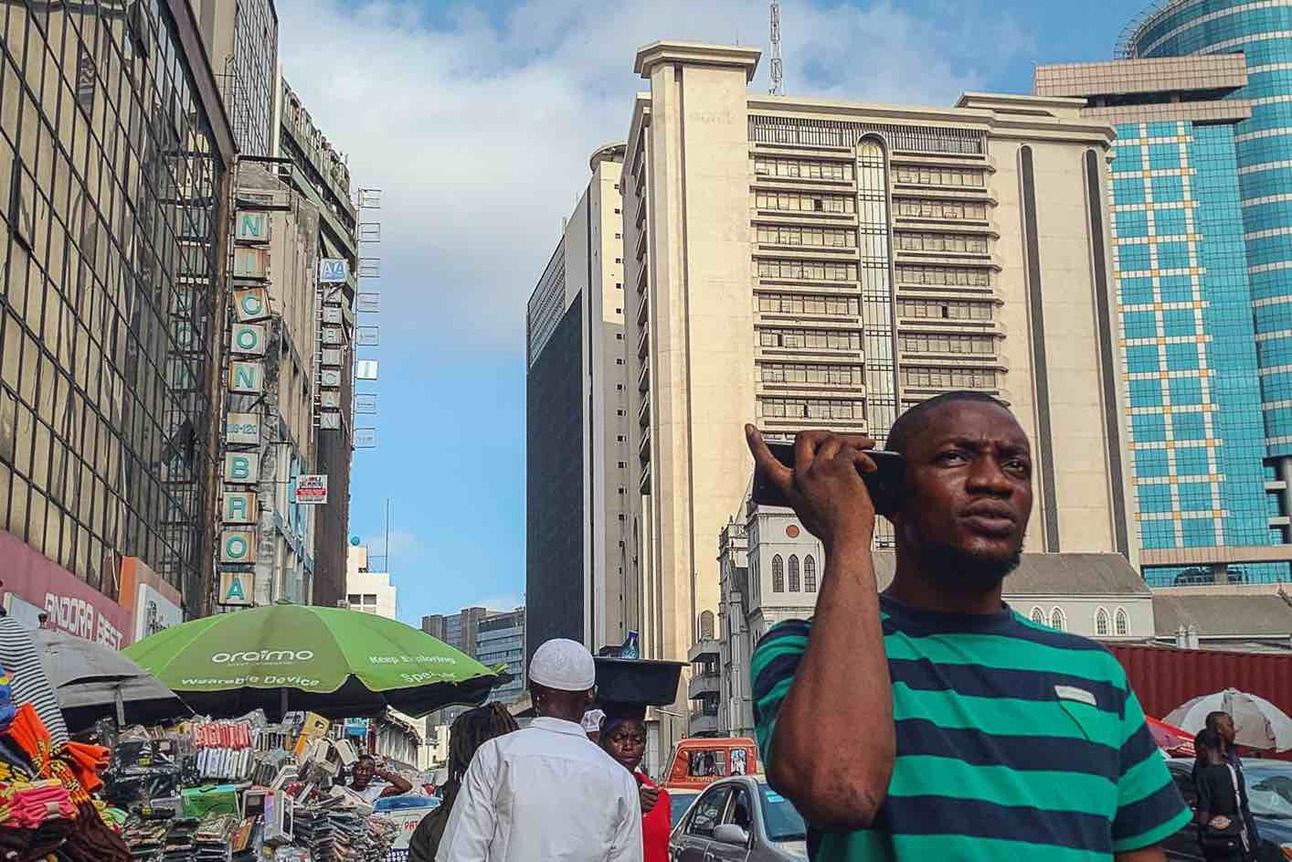
A bustling street scene in Lagos, Nigeria’s commercial hub. Photographer: Samuel Okocha/234Digest
Nigeria’s economy will face a mixed outlook in 2024, according to the Nigeria Economic Summit Group (NESG), a private-sector led think-tank. In a report released on January 23rd, the NESG projected that growth, inflation and the external balance will be influenced by both positive and negative factors, and called for a phased approach to economic transformation.
On the positive side, the report identified the start of operations at the Dangote refinery, a huge private project, in the first quarter of 2024 as a potential boost for the oil refining and manufacturing sectors, which could moderate the contraction in both sectors and boost the overall gross domestic product growth.
However, the report also highlighted several downside risks, such as the fuel subsidy removal and high transport costs, which could hurt the transport sector and consumer prices. Other threats include low investment in the oil and gas sector, crude oil theft, climate shocks, and insecurity, which could affect domestic crude oil production, crop output and food prices.
Nigeria’s growth has done little to lift the living standards or social indicators of most of its people, making economic reform a pressing priority, the chief executive of the NESG, Tayo Aduloju, said in the foreword of its latest report. He stressed the need for the government to pursue an agenda that will sustain high growth and make it more inclusive.
The NESG projected that inflation would remain high in 2024, driven by supply-side factors and exchange rate pressures. It suggested that capping petrol pump prices could limit the impact of fuel subsidy removal on the prices of food and non-food items. It also forecast higher revenue allocation to the states and local governments due to fuel subsidy removal and currency devaluation.
The report noted that the government’s policy stance signals less reliance on public borrowing, reducing the threat to fiscal sustainability. It also said that the need to attract foreign investments would keep monetary policy tight despite a possible slowdown in inflation.
The report expressed concern over the low accumulation of external reserves, despite high global oil prices. It blamed this on foreign-exchange shortages and a lack of adequate hedging instruments, which could discourage foreign investment inflows and weaken the domestic currency.
The report concluded that the Nigerian economy needs a strategic transformation to achieve sustained high economic growth and development. It proposed a three-phase roadmap, consisting of stabilization, consolidation, and acceleration, with specific policy priorities for each phase.
The NESG is a non-profit, non-partisan organisation that advocates for the reform of the Nigerian economy into an open, private sector-led economy that is globally competitive on a sustainable basis. It organises an annual economic summit that brings together leaders from the public and private sectors to discuss and propose solutions to the nation’s economic challenges.
This news story is brought to you by 234Digest, your premier source for unbiased news, insights, and features on Nigeria's economy and business environment. Stay informed and ahead of the curve by subscribing to our newsletter, delivered twice weekly to your inbox.

